Is reflecting sunlight a solution for climate change?
5 December 2013
One of the important aspects of the warming of our planet is how the rising temperatures will impact the climate, including how much and when it rains. Humans are producing high quantities of carbon dioxide (from cars and industry), together with other greenhouse gases like methane, causing a ‘blanket’ effect in the Earth’s atmosphere, trapping the heat from the Sun and heating up our planet. This is called the greenhouse effect. Geoengineers have thought about trying to lower the amount of sunlight that reaches the Earth so that less heat can be trapped and therefore cause less warming. However, new research shows that this might not be such a good idea. When the Earth warms, more water begins to evaporate, causing more clouds to form and making some areas drier and others wetter. The German scientists Alex Kleidon and Maik Renner have found that water reacts differently when it is heated by the greenhouse effect to when it is heated by the Sun’s radiation. They found that heat from the Sun causes more water to evaporate than greenhouse-gas warming. Since the Sun drives the water cycle (the sequence of evaporation, cloud formation, rain/snow, then more evaporation), reducing the Sun’s influence could create more weather-related disasters like floods or droughts. In other words, if geoengineers try to reflect some of the sunlight from the Earth to slow global warming, they may actually cause bigger problems in terms of the Earth’s climate. The German scientists have helped the climate community understand more about how the Earth works, so that in the future we can make clever decisions about how to solve the issues around climate change.Print version
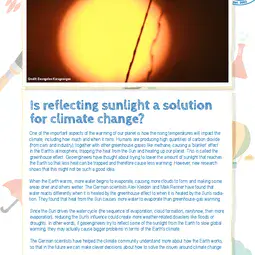
This is a kids' version of the EGU article: 'Is reflecting sunlight a solution for climate change?'. It was written by Jane Robb and reviewed for scientific content by Ioannis Baziotis and Daniel Hill and for educational content by Chris King.
Translations
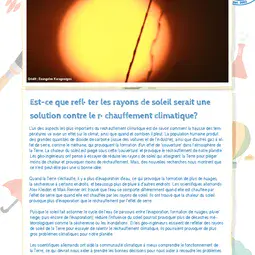
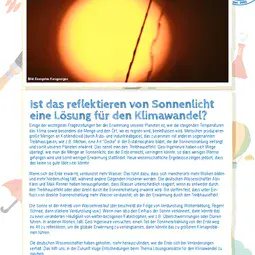
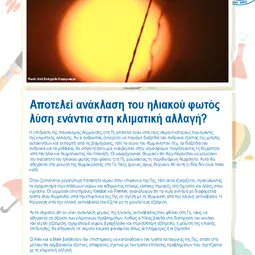
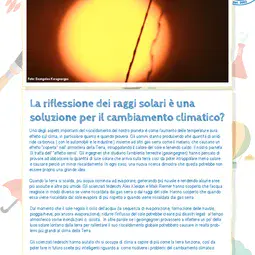
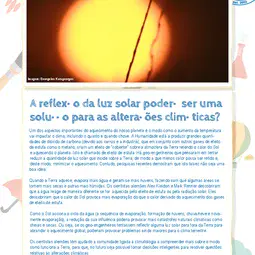
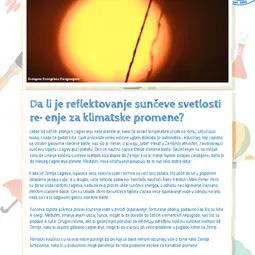
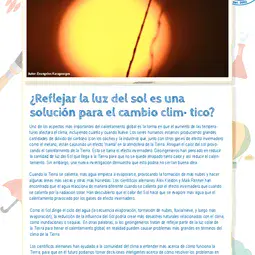
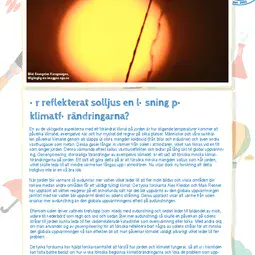
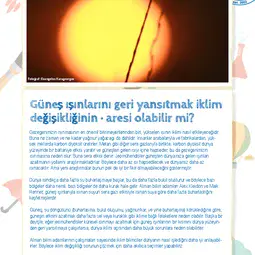
All English-language Planet Press releases are carefully edited, reviewed and proofed, by scientists, educators and EGU staff. Please note that once translated, Planet Press releases receive no further checks from EGU staff. For this reason, we cannot guarantee their accuracy, though we trust the quality of our voluntary translators and are grateful for their work.

